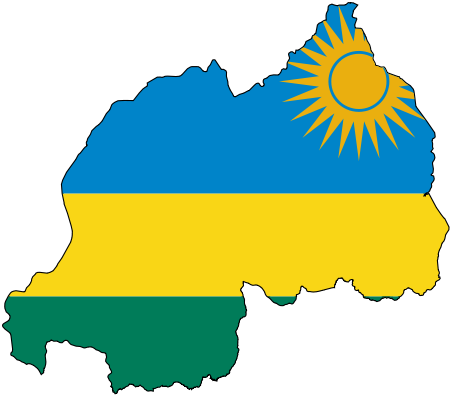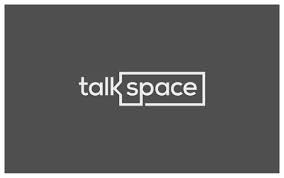Environmental Sustainability
The Environmental Sustainability program is part of the Environmental Engineering and Sustainability cluster together with 1) theEnvironmental Engineering program and 2) the Nanoscale Interactions program.
The goal of the Environmental Sustainability program is to promote sustainable engineered systems that support human well-being and that are also compatible with sustaining natural (environmental) systems.
These systems provide ecological services vital for human survival.
Research efforts supported by the program typically consider long time horizons and may incorporate contributions from the social sciences and ethics.
The program supports engineering research that seeks to balance society's need to provide ecological protection and maintain stable economic conditions.
There are four principal general research areas that are supported:
Industrial ecology:
Topics of interest include advancements in modeling such as life cycle assessment, materials flow analysis, input/output economic models, and novel metrics for measuring sustainable systems.
Innovations in industrial ecology are encouraged.
Green engineering:
Research is encouraged to advance the sustainability of manufacturing processes, green buildings, and infrastructure.
Many programs in the Engineering Directorate support research in environmentally benign manufacturing or chemical processes.
The Environmental Sustainability program supports research that would affect more than one chemical or manufacturing process or that takes a systems or holistic approach to green engineering for infrastructure or green buildings.
Improvements in distribution and collection systems that will advance smart growth strategies and ameliorate effects of growth are research areas that are supported by Environmental Sustainability.
Innovations in management of storm water, recycling and reuse of drinking water, and other green engineering techniques to support sustainability may also be fruitful areas for research.
Ecological engineering:
Proposals should focus on the engineering aspects of restoring ecological function to natural systems.
Engineering research in the enhancement of natural capital to foster sustainable development is encouraged.
Earth systems engineering:
Earth systems engineering considers aspects of large scale engineering research that involve mitigation of greenhouse gas emissions, adaptation to climate change, and other global concerns.
All proposed research should be driven by engineering principles, and be presented explicitly in an environmental sustainability context.
Proposals should include involvement in engineering research of at least one graduate student, as well as undergraduates.
Incorporation of aspects of social, behavioral, and economic sciences is welcomed.
NOTE:
Water treatment proposals are to besubmitted to the Environmental Engineering program (CBET 1440).
Innovative proposals outside the scope of the four core areas mentioned above may be considered.
However, prior to submission, it is recommended that the PI contact the program director to avoid the possibility of the proposal being returned without review.
For proposals that call for research to be done outside of the United States, an explanation must be presented of the potential benefit of the research for the United States.
INFORMATION COMMON TO MOST CBET PROGRAMS Proposals should address the novelty and/orpotentially transformative natureof the proposed work compared to previous work in the field.
Also, it is important to address why the proposed work is important in terms of engineering science, as well as to also project the potential impact on society and/or industry of success in the research.
The novelty or potentially transformative nature of the research should be included, as a minimum, in the Project Summary of each proposal.
The duration of unsolicited proposal awards in CBET is generally up to three years.
Single-investigator award budgets typically include support for one graduate student (or equivalent) and up to one month of PI time per year(awards for multiple investigator projects are typically larger).
Proposal budgets that are much larger than typical should be discussed with the program director prior to submission.
Proposers can view budget amounts and other information from recent awards made by this program via the “What Has Been Funded (Recent Awards Made Through This Program, with Abstracts)” link towards the bottom of this page.
Faculty Early Career Development(CAREER)program proposals are strongly encouraged.
Award duration is five years.
The submission deadline for Engineering CAREER proposals is in July every year.
Learn more in the CAREER program description.
Proposals for Conferences, Workshops, and Supplements:
PIs are strongly encouraged to discuss their requests with the program director before submission of the proposal.
Grants forRapid Response Research(RAPID)andEArly-concept Grants for Exploratory Research(EAGER)are also considered when appropriate.Please note that proposals of these types must be discussed with the program director before submission.Grant Opportunities for Academic Liaison with Industry (GOALI)proposals that integrate fundamental research with translational results and are consistent with the application areas of interest to each program are also encouraged.
Please note that RAPID, EAGER, and GOALI proposals can be submitted anytime during the year.
Details about RAPID, EAGER, and GOALI are available in the Proposal & Award Policies & Procedures Guide(PAPPG), Part 1, Chapter II, Section E:
Types of Proposals.
Compliance:
Proposals that are not compliant with theProposal & Award Policies & Procedures Guide (PAPPG)will be returned without review.
The goal of the Environmental Sustainability program is to promote sustainable engineered systems that support human well-being and that are also compatible with sustaining natural (environmental) systems.
These systems provide ecological services vital for human survival.
Research efforts supported by the program typically consider long time horizons and may incorporate contributions from the social sciences and ethics.
The program supports engineering research that seeks to balance society's need to provide ecological protection and maintain stable economic conditions.
There are four principal general research areas that are supported:
Industrial ecology:
Topics of interest include advancements in modeling such as life cycle assessment, materials flow analysis, input/output economic models, and novel metrics for measuring sustainable systems.
Innovations in industrial ecology are encouraged.
Green engineering:
Research is encouraged to advance the sustainability of manufacturing processes, green buildings, and infrastructure.
Many programs in the Engineering Directorate support research in environmentally benign manufacturing or chemical processes.
The Environmental Sustainability program supports research that would affect more than one chemical or manufacturing process or that takes a systems or holistic approach to green engineering for infrastructure or green buildings.
Improvements in distribution and collection systems that will advance smart growth strategies and ameliorate effects of growth are research areas that are supported by Environmental Sustainability.
Innovations in management of storm water, recycling and reuse of drinking water, and other green engineering techniques to support sustainability may also be fruitful areas for research.
Ecological engineering:
Proposals should focus on the engineering aspects of restoring ecological function to natural systems.
Engineering research in the enhancement of natural capital to foster sustainable development is encouraged.
Earth systems engineering:
Earth systems engineering considers aspects of large scale engineering research that involve mitigation of greenhouse gas emissions, adaptation to climate change, and other global concerns.
All proposed research should be driven by engineering principles, and be presented explicitly in an environmental sustainability context.
Proposals should include involvement in engineering research of at least one graduate student, as well as undergraduates.
Incorporation of aspects of social, behavioral, and economic sciences is welcomed.
NOTE:
Water treatment proposals are to besubmitted to the Environmental Engineering program (CBET 1440).
Innovative proposals outside the scope of the four core areas mentioned above may be considered.
However, prior to submission, it is recommended that the PI contact the program director to avoid the possibility of the proposal being returned without review.
For proposals that call for research to be done outside of the United States, an explanation must be presented of the potential benefit of the research for the United States.
INFORMATION COMMON TO MOST CBET PROGRAMS Proposals should address the novelty and/orpotentially transformative natureof the proposed work compared to previous work in the field.
Also, it is important to address why the proposed work is important in terms of engineering science, as well as to also project the potential impact on society and/or industry of success in the research.
The novelty or potentially transformative nature of the research should be included, as a minimum, in the Project Summary of each proposal.
The duration of unsolicited proposal awards in CBET is generally up to three years.
Single-investigator award budgets typically include support for one graduate student (or equivalent) and up to one month of PI time per year(awards for multiple investigator projects are typically larger).
Proposal budgets that are much larger than typical should be discussed with the program director prior to submission.
Proposers can view budget amounts and other information from recent awards made by this program via the “What Has Been Funded (Recent Awards Made Through This Program, with Abstracts)” link towards the bottom of this page.
Faculty Early Career Development(CAREER)program proposals are strongly encouraged.
Award duration is five years.
The submission deadline for Engineering CAREER proposals is in July every year.
Learn more in the CAREER program description.
Proposals for Conferences, Workshops, and Supplements:
PIs are strongly encouraged to discuss their requests with the program director before submission of the proposal.
Grants forRapid Response Research(RAPID)andEArly-concept Grants for Exploratory Research(EAGER)are also considered when appropriate.Please note that proposals of these types must be discussed with the program director before submission.Grant Opportunities for Academic Liaison with Industry (GOALI)proposals that integrate fundamental research with translational results and are consistent with the application areas of interest to each program are also encouraged.
Please note that RAPID, EAGER, and GOALI proposals can be submitted anytime during the year.
Details about RAPID, EAGER, and GOALI are available in the Proposal & Award Policies & Procedures Guide(PAPPG), Part 1, Chapter II, Section E:
Types of Proposals.
Compliance:
Proposals that are not compliant with theProposal & Award Policies & Procedures Guide (PAPPG)will be returned without review.
Obtain Full Opportunity Text:
NSF Program Desccription PD-20-7643
Additional Information of Eligibility:
The states of Alaska, South Dakota, and Wyoming are the only applicants allocated portions of the available funding for the directed grants under 49 U.S.C.
22907(l)(1) and (2).
See Section C(3)(a) for project eligibility.
The State Department of Transportation in these states must submit applications on behalf of their states.
Full Opportunity Web Address:
http://www.nsf.gov/funding/pgm_summ.jsp?pims_id=505695
Contact:
Agency Email Description:
If you have any problems linking to this funding announcement, please contact
Agency Email:
Date Posted:
2019-09-11
Application Due Date:
Archive Date:
2019-12-12
Social Entrepreneurship
Spotlight
Rwanda as Social Entrepreneur Fund Beneficiary

The Republic of Rwanda has been picked as one of the six African countries as beneficiaries for a new fellowship fund program designed at supporting social entrepreneurs in tackling issues on food security.

